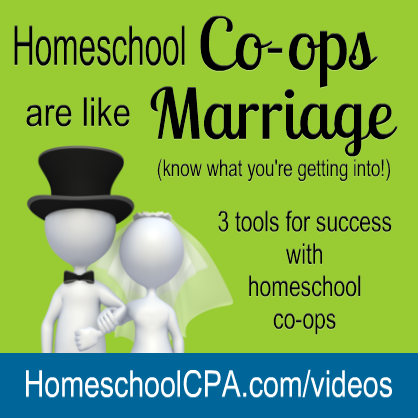Does your homeschoool organization suffer from founders syndrome?
I’ve talked to dozens of homeschool group members who have dominate leaders and they recognize founders syndrome when I describe it.
How-matters.org gives the symptoms of founder’s syndrome:
- The founder is at the center of all decision-making. Decisions are made quickly, with little input from others. No one really seems to know what’s going on.
- Planning is not done collectively and any ideas that do not come from the founder usually don’t go very far. People can even become afraid of the founder.
- The board is recruited by the founder, rather than by the board itself. Often they are friends of the founder, who may have been there from the beginning.
- The board’s role is to “support” the founder, rather than to lead the organization. They are often a rubber stamp board, having little understanding of the work the organization does.
- Board and staff members are unable to answer basic questions about the organization, such as the size of the budget, the major funding sources, the extent of the programs, without checking first with the founder.
- A casual observer would hear a lot of “I, me, my” in conversation. “My staff…” “My organization…” “My vision…” It would also not be unusual to hear the words, “Because that is how we have always done it.”
- There is resistance to any changes that will result in a (perceived or actual) loss of control. There can be a resistance to new staff or outsiders because they are perceived as a threat. There is a (perceived or actual) fear that the organization will become “something we no longer recognize.”
Some may ask, “So what’s wrong with that?” And the answer is simple: If the founder is hit by a truck tomorrow, the team or organization is at risk of not being able to continue its programs. All the good work people have done over the years is in danger of ending.
Sound familiar to you?
Your homeschool leader is a control-freak. She suffers from founders syndrome. It’s time to recognize it and start dealing with it for the health of your homeschool group.
Carol Topp, CPA



Hi Carol!
Thank you for another useful article! I also had a question concerning Form 990-N. I have recently created a nonprofit public benefit corporation that is not tax-exempt, and I’m filling out Form 990-N, which requires that I have an EIN number. What is the purpose of this number, and is there any legal way to get around not having one?
Thanks!!
Hi Carol,
I also forgot to add this question: is there any penalty for filing Form 990-N late or failing to file the form? I know in a previous post you mentioned that failure to file the form for three consecutive years could result in loss of tax exempt status, but my nonprofit is not tax-exempt, and I am not planning on applying for such.
Thank you for your help again, and I hope you have a wonderful day.
J. Tram
Mr Tram,
The EIN is an identification number for a business or nonprofit, sort of like a Social security number. It is required to have an EIN to file a Form 990-N.
Carol Topp, CPA
The Form 990 series is for tax exempt organizations. If your organization is not tax exempt as you say, then you should be filing a different tax form (and paying tax on your surplus): the Form 1120 for corporations or Form 1065 if you are organized as a partnership.
Just FYI, there is no penalty for filing the Form 990-N late, but there are penalties for late filing of the Form 990EZ and Form 990.
Carol Topp, CPA